
Nikk Ogasa is a staff writer who focuses on the physical sciences for Science News, based in Tucson, Arizona. He has a master's degree in geology from McGill University, where he studied how ancient earthquakes helped form large gold deposits. He earned another master's degree in science communication from the University of California, Santa Cruz. His stories have been published in Science, Scientific American, Mongabay and the Mercury News, and he was the summer 2021 science writing intern at Science News.

Trustworthy journalism comes at a price.
Scientists and journalists share a core belief in questioning, observing and verifying to reach the truth. Science News reports on crucial research and discovery across science disciplines. We need your financial support to make it happen – every contribution makes a difference.
All Stories by Nikk Ogasa
-
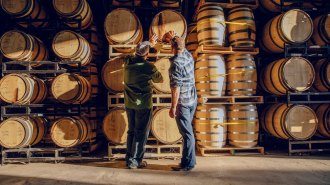 Chemistry
ChemistryMixing gold ions into whiskey can reveal its flavor
By changing the spirit’s color, the formation of gold nanoparticles can reveal how much flavor a whiskey has absorbed from its wood cask.
-
 Humans
HumansHere’s where jazz gets its swing
Swing, the feeling of a rhythm in jazz music that compels feet to tap, may arise from near-imperceptible delays in musicians’ timing, a study shows.
-
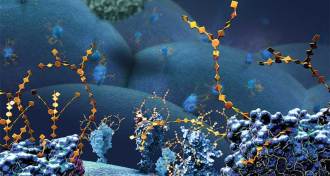 Chemistry
ChemistryA way to snap molecules together like Lego wins 2022 chemistry Nobel
Click chemistry and bioorthogonal chemistry allow scientists to build complex molecules in the lab and in living cells.
-
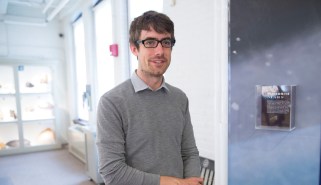 Planetary Science
Planetary ScienceRobin Wordsworth re-creates the atmosphere of ancient Mars
Robin Wordsworth studies the climates of Mars and other alien worlds to find out whether they could support life.
-
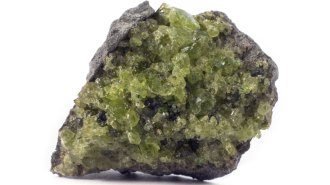 Earth
EarthHere’s how olivine may trigger deep earthquakes
Olivine’s transformation into another mineral can destabilize rocks and set off quakes more than 300 kilometers down, experiments suggest.
-
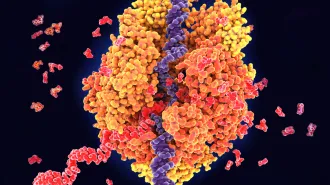 Tech
Tech50 years ago, genes eluded electron microscopes
In the 1970s, scientists dreamed of seeing genes under the microscope. Fifty years later, powerful new tools are helping to make that dream come true.
-
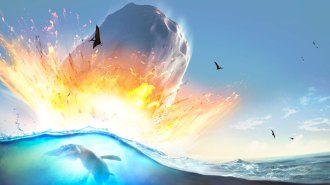 Earth
EarthNot one, but two asteroids might have slain the dinosaurs
A craterlike structure found off West Africa’s coast might have been formed by an asteroid impact around the same time the dinosaurs went extinct.
-
 Physics
PhysicsSpiraling footballs wobble at one of two specific frequencies
Researchers simulated the path of a flying football to study how pigskins wobble and why they drift sideways.
-
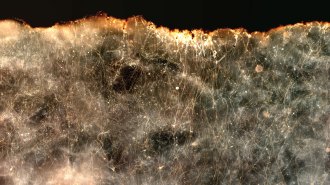 Environment
EnvironmentElectrical bacteria may help clean oil spills and curb methane emissions
Cable bacteria are living electrical wires that may become a tool to reduce methane emissions and clean oil spills.
-
 Environment
EnvironmentHow to make jet fuel from sunlight, air and water vapor
Solar kerosene could one day replace petroleum-derived jet fuel in airplanes and help stabilize greenhouse gas emissions.
-
 Environment
EnvironmentUnderground heat pollution could be tapped to mitigate climate change
Data from thousands of groundwater well sites in Europe reveal that more than half of the locations possess usable underground heat.
-
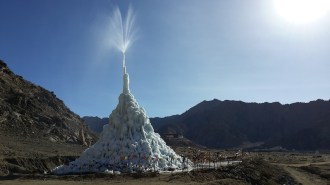 Environment
EnvironmentHow to build better ice towers for drinking water and irrigation
“Ice stupas” emerged in 2014 as a way to cope with climate change shrinking glaciers. Automation could help improve the cones’ construction.